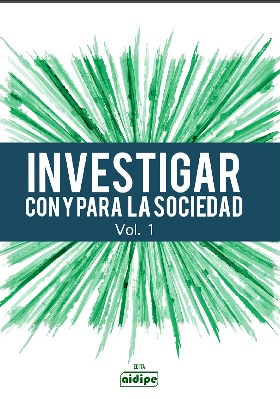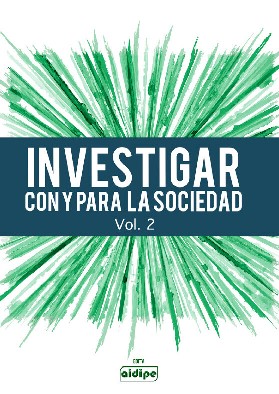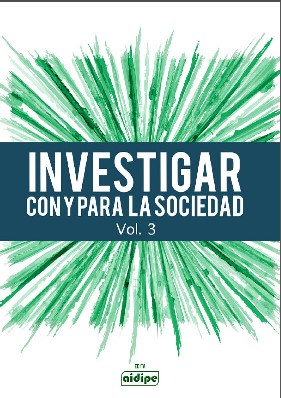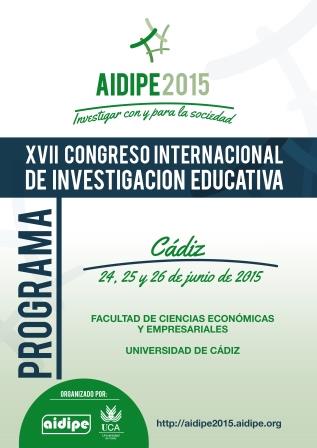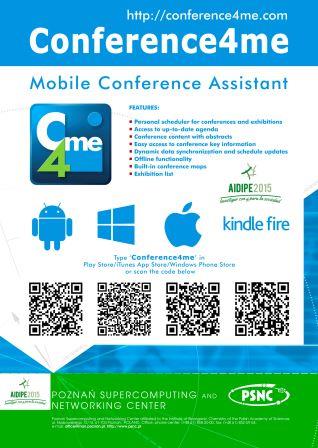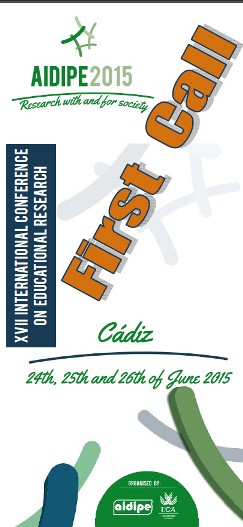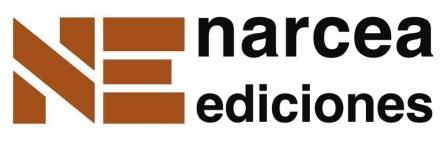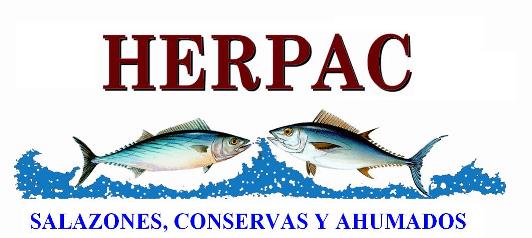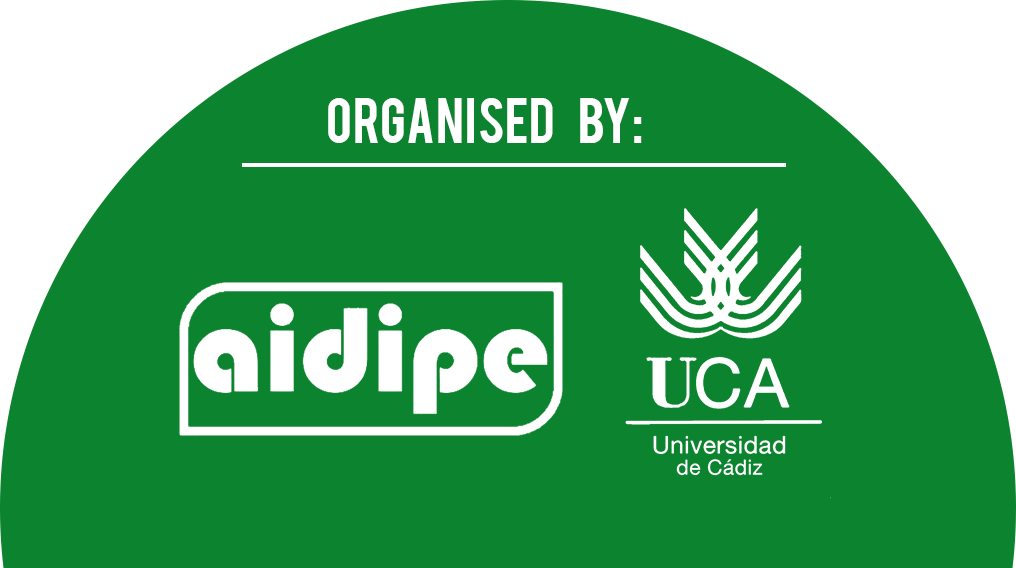Theme
AIDIPE 2015 is mainly centred on the advances and results of educational research and the theme of the conference is Research with and for Society. However, apart from its own line of research, it also contemplates the possibility of sharing educational experiences, i.e., contributions regarding proposals or innovative professional and educational practices from the different sectors, levels of education and branches of knowledge, related to its professional activity. To this end AIDIPE 2015 has been organised into two sections: research and professional and educational experiences.
A. RESEARCH
Presentation of approaches, perspectives, methods and results of the research on five outstanding themes with the object of offering prospects and proposing lines for future research. The contributions in this section will be carried out by means of oral communications or posters.
1. Research methodologies
The challenge of this theme is centred on the progress of the theoretical and applied methodologies in the field of research, as well has the demonstration and discussion of the advanced research methods and techniques used in the field of social sciences in order to offer new alternatives.
Areas of interest:
Data analysis
Socio-educational intervention
Quantitative methods
Qualitative methods
Data collection
Validation of instruments
2. Research and society
This covers those lines of research which offer results and perspectives regarding aspects which cover both interculturality, diversity, equality in education and collaborations between social agents and regions so that educational research has a real and adequate impact on society, making the latter more just, solidary and responsible.
Areas of interest:
Quality, equity, solidarity
Citizens and social cohesion
Culture and research policies
Diversity, differences and society
Education and intercultural communities
Internationalisation and cooperation
Impact of globalisation
Social impact of research
Promotion of equality
The challenges and opportunities of educational research
University, enterprise, organisations and society
3. Learning, training and development
It is important to know the processes and conclusions resulting from research on cutting edge learning practices and advances in training and orientation processes that promote peoples' development and entrepreneurship.
Areas of interest:
Learning in intercultural contexts
Permanent and strategic learning
Adult learning and training
Learning and training in virtual contexts
Mobile learning
Classrooms of the future
Student communities, communities of practice
Skill development
Research training
Educational training and development: primary to secondary levels, technical levels and Higher Education
Teacher training: primary to secondary levels, technical levels and Higher Education
Motivation and commitment to learning
Mentoring
Orientation and development: personal, academic, professional
Professional retention and retraining
Learning society
Academic and work related transitions
4. Evaluation and Assessment
This theme is centred on the research which explores current assessment tendencies responding to the classic questions: What is being assessed? How is it assessed? Who carries out the assessment? Why is assessment carried out? All from innovative points of view.
Areas of interest:
Assessment literacy
Quality, accreditation and excellence
Cultural and institutional evaluation policies
Innovative approaches to evaluation and assessment
Assessment of competences
Evaluation of the research
Evaluation of technology
People evaluation
Programme evaluation
Performance evaluation
Institutional evaluation
5. Technology
This includes research concerning the challenges and opportunities for the use of technology in learning, training and assessment, as well as the conceptual, methodological, organizational and social changes this involves.
Areas of interest:
Digital literacy
Ubiquitous learning
Mass collaboration and social networks
Ubiquitous assessment
Serious games and gamifications
Technological resources and assessment
Learning management systems
Mobile technology
B. EXPERIENCES
This is a new section in the association's biennial conferences and is dedicated to the oral presentation of teaching and professional experiences which represent a significant contribution in the field of education. The oral contributions in this section will be presented in the category and sessions of experiences. Included in this section are:
1. Teaching experiences
These experiences refer to innovative proposals or actions in the mentioned field of formal education. They include, amongst others, matters concerning planning, methodologies, teaching materials, technological resources and assessment. These include:
- Innovative proposals and practices in Higher Education in any area of knowledge (Arts and Humanities, Sciences, Health Sciences, Social and Legal Sciences, Engineering and Architecture).
- Innovative proposals and practices in Secondary Education and Vocational Training.
- Innovative proposals and practices in Infant and Primary Education.
- Perspectives, proposals or experiences of university students in any area of knowledge or course.
2. Professional experiences
These include contributions made by professionals, from public or private sectors, belonging to different contexts of formal education which suppose something special or an advance in their field. It includes all the sectors, organisations and related companies or those whose functions or units take into account training, research, development, assessment or innovation.
